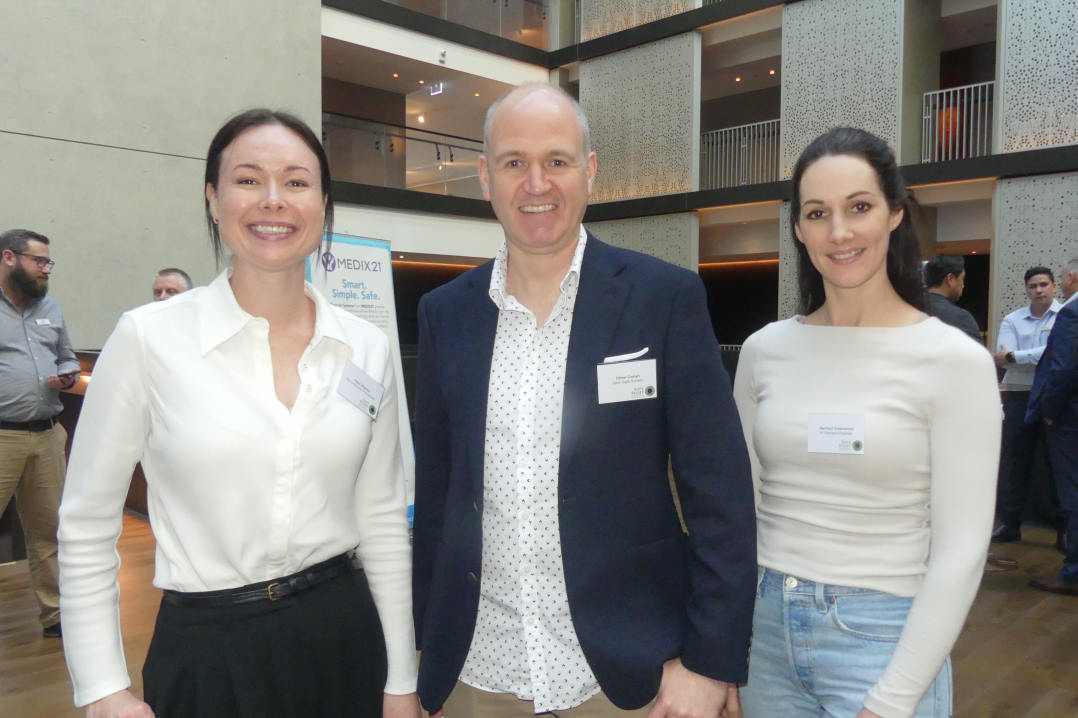A better eyecare experience for people with dementia
There are an estimated 40,000-plus people living with dementia (mate wareware) in Aotearoa, comprising around 4% of people aged 60-plus1. The Dementia Mate Wareware Action Plan2, adopted by Cabinet in 2022, calls for improvements to the design, quality and availability of existing community and home-based services to support people to remain at home with autonomy, independence and dignity.
Primary-care optometry is a key community service benefiting people with dementia, as a good level of vision is important for daily living and reducing the risk of falls3. However, in many countries people living with dementia can experience inequalities in access to eyecare4. This includes being less likely to have regular eye examinations and cataract surgery, which can be beneficial for preventing cognitive decline5. These access inequalities can result in a higher prevalence of preventable vision impairment6.
Eye examinations, however, can be distressing, exhausting and frustrating for people with dementia, but even for patients with more advanced dementia, many eye examination steps can be conducted if they are appropriately adapted6.
We conducted research to help break down barriers to accessing dementia-friendly eyecare, interviewing Australian optometrists, people with dementia and carers/support persons, exploring the eye examination experience from each perspective. We found many activities enjoyed by Australians living with dementia were visual and being able to see well mattered a great deal to them and their support people. It is clear optometrists have a vital role in the provision of vision care after a dementia diagnosis. However, our research revealed optometrists face uncertainties when examining people living with dementia, starting with awareness of the dementia diagnosis.
Given the findings of the study, we have now developed Dementia Australia’s National Library Guide on eye health and dementia covering why regular eye tests are important and how testing can be adapted to accommodate people living with dementia. The included pocket card makes it easy to declare a dementia diagnosis and support the needs of the optometrist or practice staff. Since Australian optometrists wanted to know more about dementia and how to accommodate it during the consultation, we also created a research-led training course about dementia-friendly eyecare to meet those needs. The course is now live and undergoing accreditation with the New Zealand Optometrists and Dispensing Opticians Board.
Key messages
- Assume nothing. Each person living with dementia is different!
- Accommodating cognitive fatigue was a recurring theme in our research. Prioritise the most informative tests and allow plenty of time, or book more than one appointment
- Using the right language is important: ‘people with dementia’, not ‘dementia patients’
- Educate yourself about dementia. A great starting point is Alzheimer’s New Zealand, and a New Zealand Dementia Foundation webinar about sensory changes in dementia. The important thing is to not place the onus on the person with dementia or their support people to educate you
- Carers/support people can have a really important role before, during and after the consult. Ensure they can be present, but the person with dementia should be your primary focus
- Read our literature review, which condenses research and guidelines from around the world into key recommendations for clinicians. Important extra tests are contrast sensitivity (eg. low contrast visual acuity, Pelli Robson) and stereopsis.
References
- Cheung G, To E, Rivera-Rodriguez C, Ma'u E, Chan A, Ryan B, Cullum S. Dementia prevalence estimation among the main ethnic groups in New Zealand: a population-based descriptive study of routinely collected health data. BMJ Open. 2022 Sep 7;12(9):e062304.
- Croucher M, Chamberlain M, Gee S. Post-diagnostic community services for people living with dementia in Aotearoa New Zealand. New Zealand Dementia Foundation: Wellington. 2022
- Montero-Odasso M, Van Der Velde N, Martin FC, Petrovic M, Tan M, Ryg J, Aguilar-Navarro S, Alexander N, Becker C, Blain H, Bourke R. World guidelines for falls prevention and management for older adults: a global initiative. Age Ageing. 2022 Sep;51(9):afac205.
- Piano M, Nguyen B, Gocuk S, Joubert L, McKendrick A. Primary eyecare provision for people living with dementia: what do we need to know? Clin Exp Optom. 2023 Sep;106(7):711-725.
- Lee C, Gibbons L, Lee A, Yanagihara R, Blazes M, Lee M, McCurry S, Bowen J, McCormick W, Crane P, Larson E. Association between cataract extraction and development of dementia. JAMA Intern Med. 2022 Feb 1;182(2):134-141.
- Bowen M, Edgar D, Hancock B, et al. The prevalence of visual impairment in people with dementia (the PrOVIDe study): a cross-sectional study of people aged 60-89 years with dementia and qualitative exploration of individual, carer and professional perspectives. Southampton (UK): NIHR Journals Library; 2016 Jul. (Health Services and Delivery Research, No. 4.21.)

Dr Marianne Coleman is an orthoptist and clinical vision research fellow at the Australian College of Optometry’s National Vision Research Institute and the University of Melbourne’s Department of Optometry and Vision Sciences. A member of the Orthoptics Australia research committee, her research is funded by the Dementia Australia Research Foundation and the Victorian Optometrists Training and Education Trust.
























